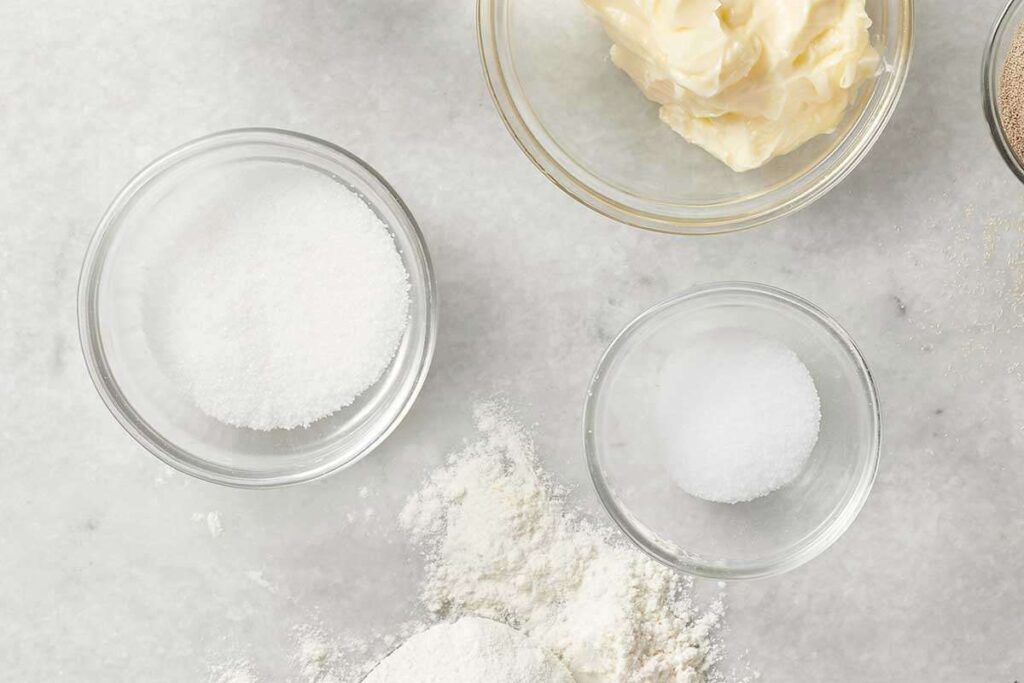
Why a Salt Water Rinse For Gums is Vital for Your Oral Health
Salt Water Rinsing For Gums: Introduction
When it comes to taking care of our teeth and gums, salt water is often recommended by dental professionals. But why is it so beneficial? In this guide, we’ll look at the scientific basis for using a salt water rinse for gums, as well as its importance in your oral care routine.
At the most basic level, it is the salt in the water that makes it helpful. Salt helps to reduce levels of bacteria and fungus in the mouth, which can help to keep your gums and teeth healthy. It also acts as an antibacterial, helping to fight bad breath and gum disease.
In addition, salt can help to break down food particles that may be stuck in your teeth, making them easier to remove. Salt is also known to reduce inflammation, which can help to reduce pain and swelling in the gums.
The combination of salt and water also helps to balance the pH levels in the mouth, which helps to promote healthier teeth and gums. This helps to lower the risk of cavities and other oral health problems.
By rinsing with salt water routinely, you can help maintain the health of your gums and teeth and reduce the risk of cavities and other issues. Read on to learn more about the materials needed for a salt water rinse, safety considerations, and how to get the most benefit from this practice.
Overview of Materials Needed for the Rinse
To perform a salt water rinse, you’ll need the following items:
- Salt – The type of salt you use doesn’t matter that much, but go for iodized sea salt. Avoid table salt.
- Water – You can use either room temperature filtered or distilled water.
- Cup – Any cup or container will do. Make sure it is large enough to hold 8 to 16 ounces of liquid.
- Means of Measurement – You’ll need a teaspoon or tablespoon to measure the salt.
It is important to make sure that you have all the materials you need before starting the rinse. You wouldn’t want to get stuck in the middle of the process without the right items!
Identifying the Right Measurements of Salt to be Used
Using salt water as part of your oral care routine is a great way to maintain healthy gums and teeth. A key step in this process is carefully measuring and mixing the salt properly. It is important to take extra precautions when measuring out the salt so you don’t put too much in the solution. Too much salt can irritate your gums and even cause them to bleed.
Before adding salt to your rinse, it’s important to make sure that you have the right tools for the job. To prepare the rinse, you’ll need a cup to mix the salt and a measure of some kind to make sure you get the correct amount of salt. Most recipes call for one teaspoon of sea salt per cup of warm water. If you don’t have a teaspoon, you can use an alternative such as ¼ teaspoon or 1/8 teaspoon.

You also want to make sure to use good quality sea salt that hasn’t been processed or refined. Table salt or other types of salt can contain additional additives which can irritate your gums or teeth.
Finally, when preparing the rinse, it’s best to mix the salt with warm water, not hot. Hot water can be damaging to your gums and even make them more susceptible to bleeding and other damages.
By following these simple steps, you can ensure that you will be using the proper measurements of salt for your salt water rinse, making it much more effective for your oral health.
Steps for preparing the Salt Water Rinse
Salt water rinses offer many benefits for the health of your gums and teeth, but it is important to make sure that your rinse is prepared correctly if you want to get the maximum benefit. Here are the steps you should take when preparing a salt water rinse:
- Gather all of the necessary materials including salt, water, a cup, and a means of measuring.
- Mix 1/2 teaspoon of salt into 8 ounces of warm water. Make sure that the salt is completely dissolved before continuing.
- Stir the mixture with a spoon to ensure that it is mixed well.
- Using a cup, swish around a mouthful of your salt water for one minute. Spit it out when you’re finished.
- Rinse your mouth with plain water after completing the rinse.
It’s important to make sure you’re using the right amount of salt in your rinse. Too much salt can cause discomfort and even gum irritation, so always make sure to measure correctly before using.
Benefits of using a Salt Water Rinse
A salt water rinse is incredibly beneficial for your gums and teeth. It provides multiple benefits to everyone, but especially those with gum disease or sensitivity. Here are just some of the ways that rinsing with salt water can benefit you:
- Kills bacteria: A salt water rinse kills germs and bacteria that can lead to cavities and gum disease.
- Protects teeth from decay: By destroying bacteria in your mouth, a salt water rinse can help protect your teeth from decay.
- Reduces inflammation: Salt is a natural anti-inflammatory and can help reduce inflammation of the gums.
- Boosts oral health: In general, a salt water rinse is great for your overall oral health and can help prevent decay and infections.
- Reduces sensitivity: The antibacterial properties of a salt water rinse can reduce sensitivity of the teeth and gums.
- Gets rid of bad breath: The salt water rinse can help get rid of any bad breath that is caused by bacteria in your mouth.
All these benefits make a salt water rinse an excellent addition to your oral hygiene routine. Ultimately, it can help you to maintain healthy gums and teeth for years to come.
Common Mistakes to Avoid
Making a salt water rinse for your gums is a simple and safe process, but there are potential pitfalls if done incorrectly. The following common mistakes should be avoided to ensure that you get the most out of your rinse.
- Using too much or too little salt – Too little salt means that the rinse won’t be effective, while too much salt can cause irritation. Measure the amount of salt carefully and stick to the recommended measurements.
- Using cold water – Salt water rinses should be done with warm water to help the salt dissolve more quickly. Cold water will not provide the same effect.
- Drinking the rinse – This rinse is not meant to be swallowed, so it’s important to avoid drinking it. Rinsing your mouth and swishing the liquid around for a few seconds before spitting it out is the recommended way to use it.
- Rinsing too often – Doing a salt water rinse too frequently can be damaging to your gums and teeth, and it should only be done up to two times a day.
- Not brushing afterwards – After finishing a salt water rinse, it’s essential to brush and floss your teeth as normal. Otherwise, bacteria that was removed during the rinse may accumulate again.
Avoiding these mistakes is key to reaping the benefits of a salt water rinse. By following the instructions and making sure to do the rinse correctly, you can protect the health of your gums and teeth.
Cautions associated with salt water rinses
When considering a salt water rinse to help protect and strengthen your gums, there are some cautions to keep in mind for the most safe and effective results. The main caution to be aware of is that salt water should not replace a regular brushing and flossing routine. It is an additional measure to protect and clean your gums, but it won’t replace the importance of regular brushing and flossing.
In addition, too much salt can actually be damaging to your gums and teeth. Too much salt can cause sensitivity in your gums and teeth, as well as causing irritation and damage. When using a salt water rinse, always remember to use it in moderation and follow the measurements listed in this guide.
Finally, if inflammation or excessive bleeding persists after you’ve tried the salt water rinse, seek medical advice from a dentist. A professional opinion can help you figure out the exact cause of the problem and the best solution for you.

How to Incorporate Salt Water Rinsing into Your Daily Routine
Salt water rinses are a great way to naturally protect your gums and teeth from bacteria and provide some much-needed relief from soreness and inflammation. Here are some key tips on how to incorporate it into your daily oral care routine and get the most out of it.
- Brush first: Before using a salt water rinse, make sure to brush your teeth with your regular toothpaste. This ensures that any accumulated plaque or food particles are removed.
- Use warm water: The rinse should be prepared using warm water as it helps to open pores and maximize the efficacy of the treatment.
- Choose the right amount of salt: When preparing the solution, opt for a ¼ teaspoon of salt per 8 ounces of water. Any more than this can lead to an overly salty solution and cause discomfort.
- Swish the solution for around 30 seconds: After adding the salt to the water, swish the solution around in your mouth for around 30 seconds. This helps to loosen any bacteria and ensure that the treatment takes effect quickly.
- Keep a schedule: To gain the full benefits of the rinse, try to stick to a schedule of doing it at least twice a day. This helps to reinforce the protective effects of the rinse.
- Repeat multiple times: If necessary, and depending on the situation, you can repeat the rinse several times throughout the day. Maintaining regularity is key to gaining the full advantages of the rinse.
By making salt water rinsing part of your daily oral care routine, you’ll be able to effectively protect your gums, teeth and even your tongue. Remember to use warm water, measure the salt appropriately, and swish the solution for at least 30 seconds.
What to Do if Further Treatment is Necessary
Gums and teeth can deteriorate for a variety of reasons, and for cases like these, a salt water rinse may not do the trick. For more severe cases, it may be time to seek out further help from a dental professional. But how can you tell if further treatment is necessary? This section will help you identify the need for further treatment and provide tips on where to get it.
If you have been using a salt water rinse regularly and still experience inflammation or pain in your gums, unevenly shaped teeth, receding gums, discolored patches, cavities, or strange taste in your mouth, you might need additional assistance. These are all signs that your condition is more than just the common irritation and plaque accumulation that the salt water rinse helps to combat.
In these cases, it is best to seek out a dental professional who can evaluate your condition and come up with a solution. They can recommend treatments such as root canals, oral surgery, and dentures, depending on the severity of the problem. In some cases, antibiotics may even be necessary to clear up the infection.
Additionally, speaking with your general healthcare provider may be beneficial, especially if you have other medical conditions that may affect your oral health such as diabetes, arthritis, or heart disease. They can advise you on dietary changes, vitamin and mineral supplements, and other lifestyle modifications that may be helpful.
To find a qualified dental professional, consult with your regular healthcare provider or take a look online for reviews and recommendations. It’s important to find someone equipped with the latest knowledge and technology to properly diagnose and treat your oral health issues.
Popular Concoctions and Recipes Incorporating Salt Water
Salt water is often used in different recipes to help reduce inflammation in gums and fight against bacteria. Here are some popular concoctions that you can use when incorporating salt water in your oral care regimen.
- Salt water rinse: Fill a cup with 8 ounces of warm water and add ½ teaspoon of salt. Swish the solution around in your mouth for about 30 seconds and then spit it out.
- Soothing salt water gargle: Mix ½ teaspoon of salt into 8 ounces of warm water. Swish it around in your mouth and then gargle it for 10-15 seconds.
- Salt water and baking soda mixture: Mix 1 teaspoon of baking soda and 1 teaspoon of salt with 4 ounces of warm water. Dip your toothbrush in the mixture and brush your teeth for about 2 minutes, making sure to reach all of the crevices.
- Salt water and lemon juice mixture: Mix 1 teaspoon of lemon juice and ½ teaspoon of salt in 8 ounces of warm water. Swish the mixture around in your mouth and then spit it out.
These concoctions are simple to make and follow, and they can provide great benefit to your oral health if done regularly. Be sure to always consult your dentist before starting any new oral care routine.
Conclusion
A salt water rinse for gums is an effective way to help keep gums healthy, improve oral hygiene and reduce the risk of gum disease. It is a simple routine to fit into your daily oral care regimen and can be beneficial to all ages. Regular rinsing with salt water is easy to do and costs very little.
We hope this guide has provided you with all the information you need to get started with a salt water rinse and reap its benefits. If you have any further questions or concerns, always speak to your dentist or healthcare provider.
If you’re interested in learning more about salt water rinsing or incorporating it into your daily routine, make sure you consult your dentist for advice tailored to your individual needs.
FAQs and Answers
It’s natural to have questions when trying something new, and salt water rinses for gums are no exception! Let’s go over some frequently asked questions so you can get a better understanding of the topic.
- What kind of salt should I use?
When preparing your salt water rinse, it’s best to use a fine-grain sea salt or Himalayan salt as they dissolve better in water. Table salt tends to be heavily processed and is rather coarse, making it more difficult to dissolve. - How often should I rinse with saltwater?
Ideally, you should rinse with saltwater after each time you brush and floss. You could also rinse with salt water before brushing for an extra boost of freshness. - How long should I rinse for?
For best results, you should swish around the saltwater solution for up to two minutes. Make sure to use gentle swishing motions and don’t be too vigorous to avoid irritating the gums. - Will drinking salt water help my gums?
No, drinking salt water will not provide the same benefits as rinsing with it. In fact, drinking very salty water can cause dehydration and upset your electrolyte levels. It’s best to stick to rinsing with salt water to get the full benefits.
Answering these FAQs should have cleared up any lingering doubts you may have had about salt water rinses for gums. Remember to always use gentle motions and keep the solution at a lukewarm temperature to minimize any discomfort.
Leave a reply